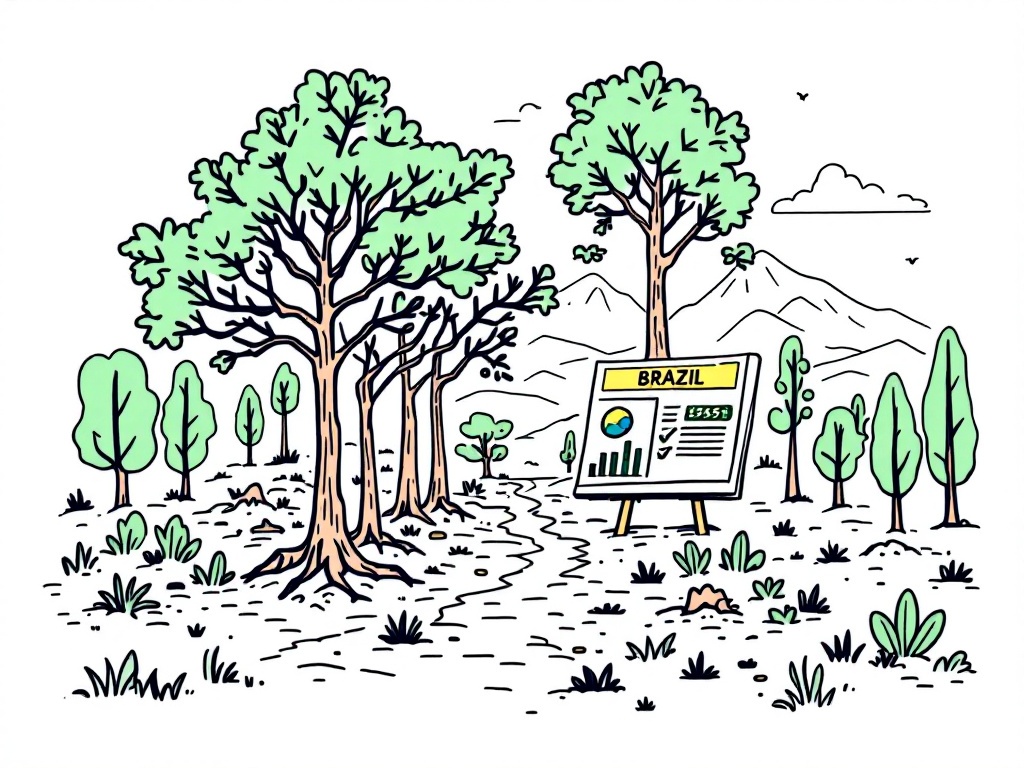Apple's Eucalyptus Farm in Brazil Draws Ecological Concerns

São Paulo, Thursday, 24 April 2025.
Apple’s efforts to establish eucalyptus tree farms in Brazil for carbon neutrality face criticism over potential environmental impacts, spotlighting complex tensions between corporate sustainability and local ecological balance.
Eucalyptus Plantations: A ‘Green Desert’?
Apple’s initiative to plant eucalyptus trees in Brazil has been met with skepticism by environmentalists and locals who describe the areas as ‘green deserts’. These plantations, although aesthetically different from the native Cerrado savanna, raise concerns about biodiversity and the increased risk of wildfires [1].
Economic Versus Ecological Impacts
While the orderly appearance of eucalyptus plantations is appealing to some local residents, concerns about the wider environmental impacts persist. The monoculture nature of these plantations often leads to reduced biodiversity and can strain local water resources as plantations expand, taking over pastures [1][2].
Corporate and Environmental Objectives
Apple’s eucalyptus farms are part of a larger sustainability strategy aimed at offsetting carbon emissions. The company has partnered with Goldman Sachs and Conservation International through the Restore Fund, pledging to invest in reforestation and sustainable forestry projects to achieve carbon neutrality by 2030 [1][3].
The Cerrado’s Biodiversity at Risk
The Cerrado, known for its rich biodiversity, faces threats not only from eucalyptus plantations but historically from agricultural expansion too. About half of this ecosystem has been converted for farming since the 1970s. This holds significance as the Cerrado stores a substantial amount of carbon underground, making it essential to global climate regulation [1][4].
Future Considerations for Sustainability Efforts
Moving forward, it is crucial to balance corporate carbon offset goals with the preservation of native ecosystems. Stakeholders suggest that financial models could integrate both economic and environmental benefits, thereby supporting both eucalyptus plantations and native ecosystem restoration [3][5].
Sources
- www.technologyreview.com
- www.fastcompany.com
- news.mongabay.com
- www.globalcitizen.org
- www.weforum.org